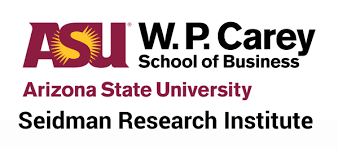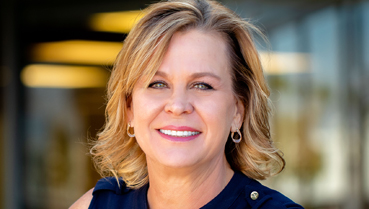ASU Seidman Research Institute on Televerde Prison Program Findings
ASU Seidman Research Institute Unveils Findings of Televerde Prison Workforce Development Program – Including Economic, Social and Fiscal Impact
Televerde operations generate $238.2 million GDP and $196.1 million labor income in the Arizona economy between 2011 and 2018 resulting in $13.3 million in annual taxpayer savings and a recidivism rate that is 91 percent lower than the national average
PHOENIX, AZ –January 14, 2020 – Televerde, the first and only fully integrated sales and marketing technology organization with a proven execution model for generating demand and accelerating sales, today announced that Arizona State University’s Seidman Research Institute has released the findings of a study that reviewed the economic, social and fiscal impact of Televerde and the Arouet Foundation’s prison workforce development program on individuals, families, and the State of Arizona.
The results revealed that participants of Televerde’s prison workforce development program go on to attain employment, earnings, and education at higher rates and reoffend at significantly lower rates than other formerly incarcerated females in the United States. The study also highlighted the positive economic impact on the State of Arizona, showing that Televerde’s direct operations alone generated an estimated cumulative total of $238.2 million GDP and $196.1 million labor income in the Arizona economy between 2011 and 2018.
In addition to Arizona, Televerde’s reach currently includes Indiana. The company opened up its second call center in Indiana at the Madison Correctional facility in October 2019. The first opened at Rockville Correctional facility in 2015. Between both Indiana facilities, the company employs more than 125 female prisoners, with plans to ramp up employment this year. Televerde will also expand its model in 2020 with call centers in Florida and the United Kingdom.
“More than 600,000 women and men are released from federal and state prisons each year. These individuals are looking for a second chance but are being denied jobs and career opportunity because of their background and circumstance,” said Televerde CEO Morag Lucey. “This study validates our position that discarding someone for the worst mistake they made on the worst day of their life is a waste of human potential.”
The women in the Televerde prison workforce development program are extensively trained, becoming highly skilled in business acumen and the art of sales and marketing and certified in the most current technologies on the market. This level of knowledge and on-the-job experience enables them to optimize business value for our clients and secure highly competitive career positions upon release. Added Lucey, “Not only are we helping address the talent shortage and skills gap, the $13.3 million in annual cost savings for taxpayers and 5.4 percent recidivism rate are an added bonus that benefits everyone in the community.”
Summary of Findings
The participants of Televerde’s prison workforce development program go on to attain employment, earnings, and education at higher rates and reoffend at lower rates than other formerly incarcerated females in the United States:
- Seidman finds that Televerde program participants attain employment after release at a rate of 44.3 percentage points higher than the U.S. national average for other released female prisoners.
- In addition, employed Televerde program participants report higher wages than other released female prisoners nationwide, amounting to an estimated $843.0 million cumulative post-release lifetime earnings benefit.
- Televerde program participants also report achieving higher levels of education after release from prison, despite holding a similar education level as the national population of female state prisoners at the time of incarceration.
- Finally, Televerde program participants reoffend at a rate 34.7 percentage points lower than the national average for other released female prisoners within 1 year, and 53.9 percentage points lower within 3 years.
Additional benefits exist for the families of Televerde program participants.
- Seidman’s findings suggest that dependent children of Televerde program participants are 11 times more likely to graduate high school than dependent children of other incarcerated mothers.
- Additionally, the adult children of Televerde program participants are 11 times less likely to be incarcerated compared to the adult children of other incarcerated mothers.
- Observed increases in employment and income among Televerde program participants after release may also reduce barriers to health care and encourage the development of good health behaviors in dependent children.
- Lastly, Televerde program participants indicate that their relationships with children, partners/spouses, and other family members improve as a result of their employment with the company.
The State of Arizona also benefits from the success of the Televerde prison workforce development program:
- As a result of reduced expenditure on the incarceration of reoffenders, the Televerde program has provided between $49.2 million and $76.4 million in cumulative cost savings to the state since 2011. This equates to an annual saving of $6.1 million to $9.5 million.
- Based on the Arizona Tax Year 2018 income brackets and contributions, the estimated 1,021 employed Televerde program participants may contribute an additional $26.9 million in personal income taxes over their post-release lifetime as a result of their increased earnings.
- Finally, an economic impact analysis of employment expenditure and supplier purchases demonstrates that Televerde’s direct operations alone generated an estimated cumulative total of $238.2 million GDP by State and $196.1 million labor income in the Arizona economy between 2011 and 2018.
ASU Research Confirms Transformative Power of Second Chances
The controversial 1994 U.S. crime bill was enacted the same year that Televerde was founded in Phoenix, AZ. More than two decades later, the former is responsible for accelerating mass incarceration, which costs this country $182 billion annually. The latter operates a business model that delivers sales and marketing solutions to top businesses like SAP, Adobe-Marketo and Pulse Secure with a talent pool that consists largely of women hired, trained and compensated inside two U.S. state correctional facilities.
We believe that everyone deserves a fair shot at rebuilding their lives and becoming more than their worst mistake. We empower women with business skills, extensive training and technology certifications such as Marketo, Eloqua and Salesforce. It’s only been the last decade that criminal justice reform has started to gain traction.
Today, there are 2.3 million people in our nation’s prisons and jails—a 500% increase over the last 40 years. Changes in law and policy (like tougher drug sentences, Three-Strikes Law) explain most of this increase. Also, as business leaders began to assume roles in politics, they became acutely aware of the financial strain mass incarceration has on state and federal budgets (it’s triple the rate of funding for K-12 education). Our criminal justice system became ripe for change.
What’s also changed is people’s perception of business. Consumers are looking for brands that take a stand and that make both profit AND purpose part of their business strategy. And they will walk away from brands that don’t. This is why my job today is to tell our story and show how the global business community can and should lead with purpose.
Impact on program participants:
- Recidivism (the tendency of a convicted criminal to reoffend) among program participants is 91 percent lower than the BJS’ national rate among females released from state prisons.
- One-year rate: 0.4%
- Three-year rate: 4%
- Graduates are 2X more likely to be in gainful employment post-release; 94% of graduates are in paid employment 5 years after incarceration compared to 49% of other formerly incarcerated women.
- Graduates earn almost four times the national average for formerly incarcerated females, average lifetime earnings of up to $1.9M depending on age.
- Despite similar levels of at the time of incarceration, graduates attain higher levels of education with 84% having some college and 30% earning advanced degrees.
Impact on families:
- Dependent children are 11x more likely to graduate high school than dependent children of other incarcerated mothers.
- Adult children 11x less likely to be incarcerated compared to the adult children of other incarcerated mothers.
- Almost 70% of graduates report improved relationships with children, partners/spouses, and other family members as a result of their experience.
Impact on the state of Arizona:
- Reduced recidivism.
- Saves up to $9.5M annually; $76M since 2011 for Arizona state.
- $7.8M – $8.9M annual savings due to fewer children in foster care.
- <3% dependence on entitlement programs due to higher employment and salaries.
- Program participants may contribute an additional $27M in personal income taxes over their post-release lifetime due to increased earnings.
- Televerde operations generated $238M GDP and $196M labor income 2011- 2018.
Supporting Quotes
Tracy Eiler, Chief Marketing Officer at InsideView
“As a long-time Televerde client, the quality of work I’ve seen from the Televerde team is bar none. The depth of skills and knowledge that the women possess enable them to perform at higher levels, validating at every turn the massive benefits of outsourcing sales and marketing programs to the right partner to help achieve revenue goals. As the CMO of InsideView, I make it a point to regularly visit the Televerde call centers and have had the opportunity to see the women transform as a result of the prison workforce development program. It’s inspiring to work with a company that leads with purpose and is fully invested in empowering women to rebuild their lives as they re-enter society. ASU’s Seidman Research Institute study underscores the social and economic impact that Televerde delivers and I can attest to the business benefits, which means Televerde is a world-class example of business as a force for good.”
Dr. Anthony Evans, a Senior Researcher at the L. William Seidman Research Institute at Arizona State University
“Here at the Seidman Institute, our team is comprised of experienced academics, economists and marketers. We have done extensive research on a variety of program types throughout the southwest business community and Televerde’s prison workforce development program demonstrates significant benefits for participants, their families, and the state as a whole. The extensive training and skills-based learning that’s provided to the women within the call centers at the Arizona State Prison Complex – Perryville sets the women up for almost immediate success upon re-entry, thereby helping to lower future rates of recidivism and ultimately costs for the state.”
Dr. Kristie Rogers, Assistant Professor of Management at Marquette University
“Televerde was the focus of my research several years ago as I was working toward my PhD. What struck me most is the humanity and respect they’ve brought into their prison-run call centers. The women are unequivocally valued as capable, worthy human beings and also valued as business professionals who demonstrate an amazing ability to learn, think critically and contribute creatively and strategically to their clients’ campaigns. This level of respect in the workplace plays a big part in their success while incarcerated and their transformation leading up to release. The program Televerde has created is revolutionary and the company serves as an excellent model for other businesses..”
About the L. William Seidman Research Institute
The L. William Seidman Research Institute serves as a link between the local, national, and international business communities and the W. P. Carey School of Business at Arizona State University (ASU). First established in 1985 to serve as a center for applied business research alongside a consultancy resource for the Arizona business community, Seidman collects, analyzes and disseminates information about local economies, benchmarks industry practices, and identifies emerging business research issues that affect productivity and competitiveness.


